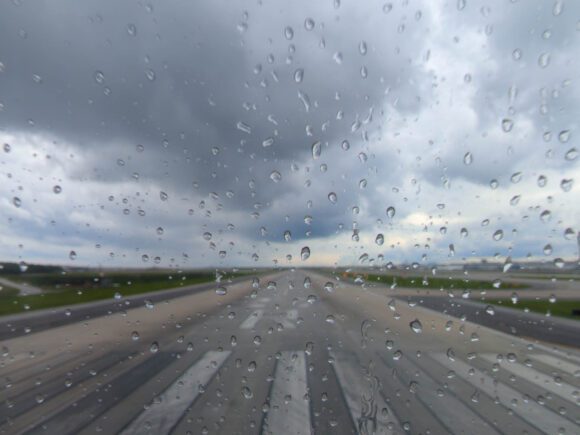The results are grim. Etihad reported a loss of $1.9bn. Emirates announced its first decline in profits in five years. And Qatar is besieged and indications are to expect it to report 30% lower revenues because of the neighboring countries blockade of airspace. What was once the future, and the center, of the Airbus and Boeing wide-body sales efforts has run out of steam with alarming speed.
To make things worse, the ME3 had big plans to “invade” the US. With far better service levels and new aircraft, they were well placed to win over business travelers. The threat was obvious to the US majors, who rather than compete, ran for cover in Washington DC. These earlier proponents of Open Skies suddenly didn’t like the idea of competitors having access to “their” market. US business travelers could easily have taken a US-flag flight to the Gulf. But for equal (or less) money they could fly on an ME3 flight – where they are offered award winning service and industry leading cabin design. The market spoke and the US majors shrank schedules to the Gulf due to a lack of traffic.
But it got even worse. The US government decided to hit business travelers hardest when they imposed security regulations that forbade travelers from bringing laptops into the cabin from certain countries, including the home airports of the ME3. For a business traveler, this is akin to saying “go away.” Business travelers have zero tolerance for disruptions and immediately changed to flights connecting through the EU. The impact was to freeze out ME3 business traffic. The ME3 quickly had to cut back US services. The US majors are determined to rid themselves of the ME3 threat.
The security limits have since been lifted. But the message was clearly received.
Not satisfied with their first moves, the US majors seem bent of following through with additional efforts to stop them. American canceled its codeshare with Qatar, claiming it and the other members of the ME3 are receiving state subsidies. Though Qatar seems determined to become a shareholder in that airline. Delta has taken a 10% stake in AF/KLM, while welcoming that group as a fellow shareholder in Virgin Atlantic. What United has planned is not reported as yet, but it is unlikely to sit out the opportunity to also cement its alliances with Star Alliance partners including Lufthansa, which competes against the ME3 in Europe.
These moves by the older network airlines speak to more than holding the ME3 at bay. These moves provide old network airlines a chance to literally lock up markets. This becomes a profound problem if one looks forward even a few years. What was an opportunity for travelers to have more choice is being curtailed. Consolidation does not and never will work in favor of the consumer or traveler. Cutting choice only serves the interests of the supplier, never the buyer. How the US airline consolidation was ever allowed remains a mystery for those familiar with antitrust law. (Useful primer) This is a story that needs to be re-told and the implications, including the fact that consolidation has chilled new entrants, examined closely. When six majors become three, competition is essentially eliminated.
On top of the competitive threats that consolidation brings, consider the plight of employees. Pilots are in ever shorter supply. A knee-jerk reaction in Congress to an unfortunate accident raised transport pilot requirements so high as to cause a pilot shortage in the industry. It was already nearly impossible for a cadet pilot to get a job at a living wage and repay their eduction, and the shortage is thankfully raising wages. (US Regionals are paying new hires between $38,000 to $65,000k with bonuses plus training costs of about $30,000.) The cost of education and pilot training are prohibitive, causing a large drop ut rate. Regional airlines face wafer thin margins under today’s Capacity Purchase Agreement structure. Meanwhile the regionals are seeing some new hires progressing quickly from joining the regionals to moving on to a major in under a year. The pilot shortage is pulling people through the system – but that means regionals are continually searching for new talent.
Non-pilot employees don’t have an especially attractive career either. Working for an airline has proven to be a rather good way to see your benefits and wages cut and have a high likelihood of losing your job to consolidation. Look at the next chart and try persuading yourself that an airline job is a great career. You must do more, earn less (never mind inflation) and run the risk of working in an industry known for retrenchments and layoffs.
The ME3 problems are ensuring they are a declining force in the US market. But even as we understand that City States cannot typically generate sufficient traffic for a large carrier, we also can see what happens when truly open skies are closed. The double-digit ME3 growth rates were unsustainable long-term, but the recent actions demonstrate why one should show them sympathy. They were not beaten by competitors, but by governments.
We should show appreciation for their disruptive behavior that demonstrated to the traveling public what true airline service could be like, with modern fleets, innovative interiors, and world-class service.
Views: 3





